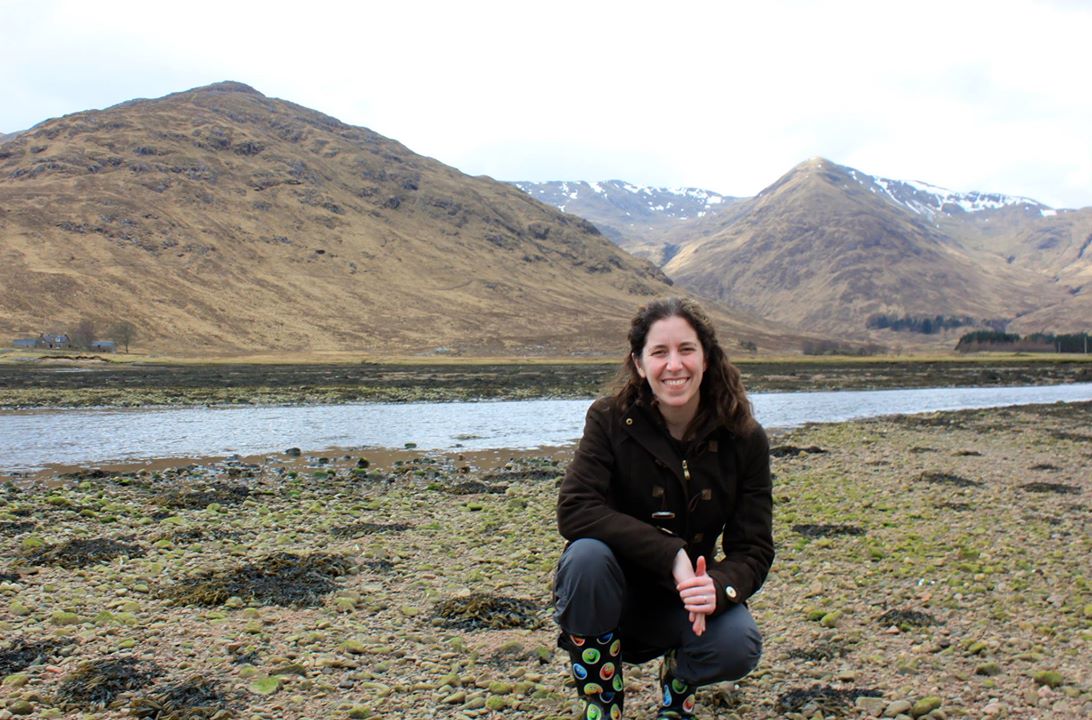 Meghan is interested in clusters of galaxies: not only because they are the most massive gravitationally bound structures in the Universe, but also because of all the interesting things that can happen to galaxies that live there. It’s a tough neighbourhood for galaxies. Astronomers talk in terms of “strangulation”, “suffocation”, “cannibalism”, “stripping”, and “starvation”, which are all ways in which a galaxy’s shape or star formation rate can be changed when it is in a crowded environment like a galaxy cluster. In DES she’s involved in following up the imaging of many clusters with further observations on other telescopes. If we get spectroscopy of the cluster galaxies we can learn about how they’re moving within the clusters – and even map out some of the surrounding large-scale structure itself.
Meghan is interested in clusters of galaxies: not only because they are the most massive gravitationally bound structures in the Universe, but also because of all the interesting things that can happen to galaxies that live there. It’s a tough neighbourhood for galaxies. Astronomers talk in terms of “strangulation”, “suffocation”, “cannibalism”, “stripping”, and “starvation”, which are all ways in which a galaxy’s shape or star formation rate can be changed when it is in a crowded environment like a galaxy cluster. In DES she’s involved in following up the imaging of many clusters with further observations on other telescopes. If we get spectroscopy of the cluster galaxies we can learn about how they’re moving within the clusters – and even map out some of the surrounding large-scale structure itself.
We asked Meghan a few more questions — here’s what she had to say:
What is your favorite part about being a scientist?
My days are very full but varied. On a given day I could be doing anything from teaching an undergraduate class, analyzing data, meeting with my PhD students, going to a seminar, conversing with collaborators around the world by email, skype, or telephone, or making plans for upcoming projects. I also have a lot of fun filming YouTube videos with filmmaker Brady Haran for his channels ‘Sixty Symbols’ and ‘Deep Sky Videos’. Every day is different!
What is your favorite space-related image, and why?
I absolutely love the Hubble Space Telescope image of the galaxy cluster Abell 2218. Not only is it a stunningly beautiful picture, but I find it really profound that at a glance it tells us some fundamental physics: mass bends light, and dark matter exists. We see highly distorted images of distance galaxies – as their light passes through the intervening massive cluster on its way to us, it gets bent and distorted, just as General Relativity predicts. Just by taking a picture, and knowing a bit about the distances involved, we can actually weight the cluster. And it doesn’t matter if most of the mass is invisible (which is actually the case) – we can still detect it. A very useful cosmic optical illusion.
Do you have kids? Do they want to be scientists too?
I have two young kids. Whenever the oldest is asking questions and trying to learn about how the world works, she declares “I’m a scientist!” I think in general kids are naturally inquisitive and make very instinctive scientists. Whether my kids will end up doing science as a profession is entirely up to them, however, and I think it’s pretty impossible to predict.
Any advice for aspiring scientists?
The idea that a scientist sits all alone in a room scribbling equations is almost entirely wrong. So much big science these days is done as part as a team, so there’s room for people with all sorts of skill sets.